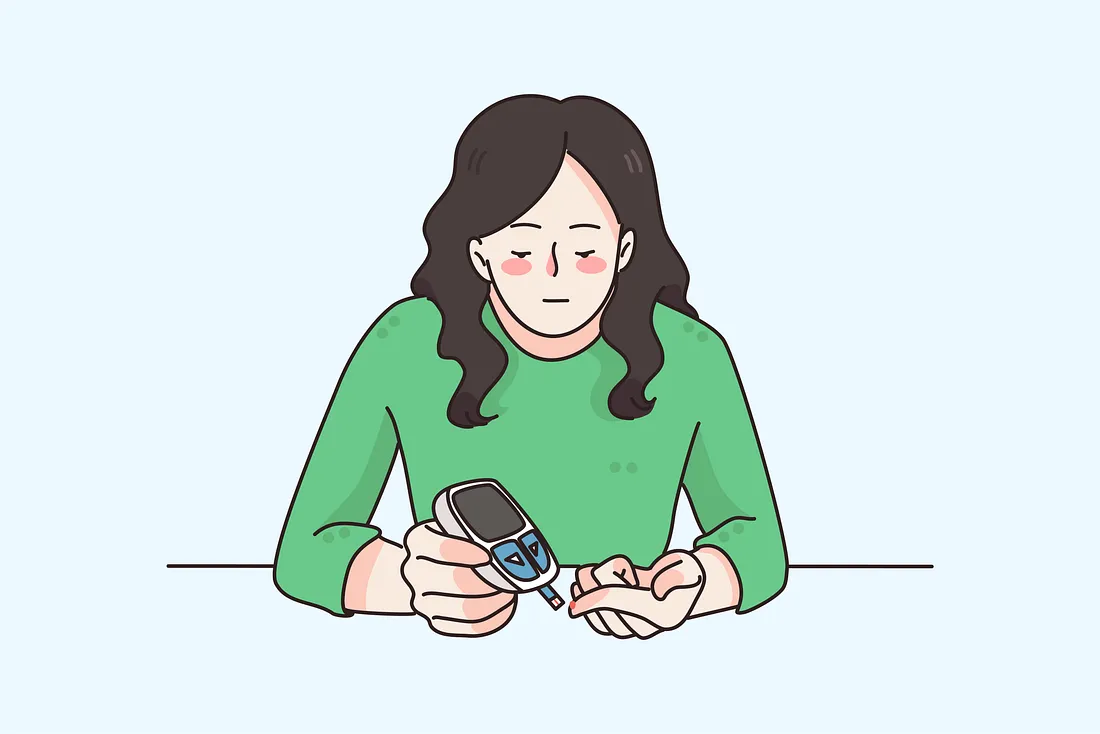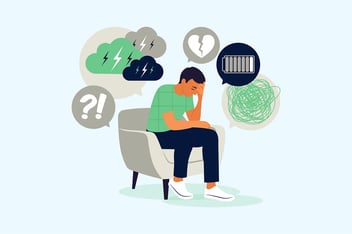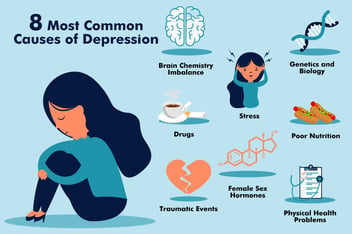Unraveling the Complex Relationship Between Diabetes and Depression

Diabetes and depression are two common and often interconnected health conditions. People with type 1 or type 2 diabetes are at an increased risk of developing depression, while those with depression are more susceptible to type 2 diabetes. Approximately 17.2% of individuals with diabetes will also experience depression, though it is frequently undiagnosed and untreated.
In this article, we delve into the complex relationship between diabetes and depression, the shared risk factors, and the importance of timely diagnosis and treatment for both conditions.
Understanding the Bidirectional Link
The connection between diabetes and depression is believed to stem from shared underlying biological and behavioral factors. The exact nature of this link remains unclear; however, the stress associated with managing chronic health conditions like diabetes can contribute to depressive symptoms.
Uncontrolled diabetes can lead to other health complications — such as nerve damage, vision problems, and hearing loss — that may also exacerbate depression. Conversely, depression can promote unhealthy behaviors, like poor diet and lack of exercise, increasing the risk of developing type 2 diabetes. This risk cannot be solely attributed to factors like antidepressant use or body weight.
Common Risk Factors for Diabetes and Depression
Several risk factors increase the likelihood of developing both diabetes and depression, including:
- Alcohol dependence
- Family history of either condition
- Being overweight
- Coronary artery disease
- Hypertension
- Inflammation
- Sleep disturbances
- Sedentary lifestyle
- Poor dietary habits
A 2018 review indicated that the prevalence of comorbid diabetes and depression has risen in recent years and is projected to continue increasing in the future.
The Impact of Comorbid Diabetes and Depression
Individuals with both diabetes and depression tend to experience worse outcomes for each condition, including reduced quality of life, impaired diabetes self-management, increased health complications, and shortened life expectancy.
Depression can exacerbate diabetes complications, as those experiencing depression often struggle with motivation and self-care, leading to unhealthy lifestyle habits that complicate diabetes management.
Potential complications resulting from both conditions may include:
- Elevated blood sugar levels
- Increased risk of cardiovascular issues
- Higher likelihood of other diabetes-related complications
- Additionally, comorbid diabetes and depression raise an individual’s risk of developing dementia.
Recognizing When to Seek Medical Help
If you have diabetes and experience persistent high blood sugar levels, elevated ketones resistant to treatment, abdominal pain, breathing difficulties, high fever, confusion, or weight loss, contact your doctor or visit an emergency room.
It is crucial to speak with a healthcare professional if you experience symptoms of depression or diabetes. Severe depression symptoms, such as self-harm or suicidal thoughts, require immediate attention.
Diagnosing Diabetes and Depression
Diabetes is diagnosed by checking blood glucose levels using various tests, including fasting plasma glucose tests, random plasma glucose tests, A1c tests, and oral glucose tolerance tests.
Depression is diagnosed by evaluating a person’s symptoms and their impact on daily functioning. A healthcare professional will inquire about your medical and family history, conduct a physical exam, and possibly order lab tests to rule out other contributing conditions. To be diagnosed with clinical depression, symptoms must cause distress or impair functioning for at least two weeks.
Assessing for Depression
Healthcare professionals employ several assessments to diagnose depression. Many of these tools are accessible online, including the Beck Depression Inventory and the Patient Health Questionnaire (PHQ-9). These self-assessment tools can help identify symptoms of depression before seeking professional help.
Consider the following questions to help identify potential depressive symptoms:
- Over the past month, have you been bothered by having little interest or pleasure in doing things?
- Over the past month, have you been bothered by feeling down, depressed, or hopeless?
- Over the past month, have you experienced significant changes in your appetite or weight, either eating too much or too little?
- Over the past month, have you had trouble sleeping, either struggling to fall asleep, staying asleep, or sleeping too much?
If your answer was “yes” to any or all of these questions, it is recommended that you consult with a healthcare professional for a more comprehensive evaluation and diagnosis.
Conclusion:
The complex relationship between diabetes and depression is characterized by shared risk factors, bidirectional links, and a considerable impact on health outcomes. Recognizing the signs and symptoms of both conditions and seeking timely medical intervention is crucial for effective management and improved quality of life.
By understanding the connection between these two conditions and working closely with healthcare professionals, individuals can develop personalized treatment plans that address both diabetes and depression. This integrated approach is essential for achieving better health outcomes, reducing the risk of complications, and enhancing overall well-being for those living with comorbid diabetes and depression.
EaseCare Links
Website | Facebook | Instagram | Get help | Free Mental Health Assessment




